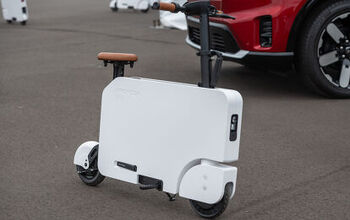Inside The Industry: An Unsung Hero Recalls How A Worldwide Crisis Was Averted

After the March 11 monster earthquake and tsunami wiped out large parts of Japan, headlines focused on the near-meltdown of Fukushima. Recently, I learned that there was a strong likelihood of a worldwide economic meltdown, caused by a microchip factory 80 miles south of Fukushima. Here is the story of how the crisis was contained.
Inside the cleanroom on March 11
“I was already retired when the earthquake came,” remembers a Toyota official who requested that his name is not published. He is a seasoned production expert, one of the few alive who received personal training from Taiichi Ohno, the father of the Toyota production system. “I thought, let others handle the problem, but I was wrong.” He was recalled and asked to spearhead the Toyota part of the reconstruction effort.
When he received the call, Toyota’s Japanese production system itself was pretty much unharmed, however, there were 659 cases of suppliers in serious trouble. The most serious trouble was at a chipmaker named Renesas. Born from a merger of the semiconductor arms of NEC, Hitachi and Mitsubishi, Renesas supplied some 20 percent of the world’s automotive microcontroller market. About 70 percent of the production was sold to Japanese automakers, the remaining 30 percent went to US and European car companies. Two weeks after the catastrophe, it was estimated that Renesas’ Naka plant, would not be operational until July.
Renesas office on March 11
That estimate was overly optimistic, I hear now.
“On April 1, we were told that basic repairs would take two and a half months,” the unnamed official remembers. “Start of mass production was scheduled for September. Which meant that first product to customer would have been shipped in January.“
While the eyes of the world were on the smoldering ruins of Fukushima, the damaged chip plant was about to trigger a worldwide disaster. Renesas is one of the world’s leading manufacturers of flashable microcontrollers, the little brains that are inside of more products than we imagine. The chips could not be easily replaced, moving their production elsewhere would have taken nearly a year. “Carmakers, PC-makers, cellphone makers, appliance makers, all were affected,” remembers the reactivated production veteran. “We were facing a worldwide economic crisis.”
Renesas asked for help, and its main customers sent help. Toyota, Honda, Nissan, Canon and many more sent their best people to Hitachinaka, a two hour drive north of Tokyo. What they saw was disheartening.
Three days later, the power lines were back in place
“The building was more or less OK,” remembers the production expert. The insides of the cleanrooms were a jumble of equipment that had been thrown around by giant hands. Pipes for concentrated acid were leaking, high voltage lines were even more dangerous. “And every two hours, there were aftershocks.”
Two and a half months of repair time sounded optimistic, but our man told an assembly of aghast Renesas engineers: “I won’t listen how long it will take, we’ll finish the initial repair in 10 days.”
Complex machinery had to be repaired and aligned
Thousands of people, brought in from all of Japan, went to work, 24 hours a day. Three days later, the power lines were back in place, it would have been earlier “if the aftershocks would not have made us to do our work twice.” 150 specialty chemical pumps were disconnected, sent to their makers, and were back, rebuilt and as good as new, ten days after.
The before picture (left) was taken March 18; the after picture was taken April 11.
1,700 machines and pieces of equipment had to be repaired, reinstalled, aligned. “Many were imported machines, and the responsible technicians had returned back to their country,” remembers the man that tells the story. With the help of Japan’s formerly formidable Ministry of Trade and Industry (MITI), missing engineers were rounded up. A large room was converted into a crisis center, where the team leaders assembled twice a day. The rules were simple: If something works, don’t report it. If there is trouble, report it and ask for ideas.
The basic repairs were done within ten days. End of April, the machines were running. “All were perplexed,” remembers the unsung hero, “full production was established in August, six months earlier than originally estimated.”
The before picture (left) was taken March 18; the after picture was taken April 11.
The Renesas recovery saved many billions of dollars, and prevented a crisis that would have impacted many industries. Remembers the anonymous retiree, who says he was just one of nearly 100,000 people worldwide who helped bring Renesas back on-line:
“I wish they would have given us just 10 percent of the savings as a fee. Nobody gave us anything, but anyway, we did what we needed to do.”

Bertel Schmitt comes back to journalism after taking a 35 year break in advertising and marketing. He ran and owned advertising agencies in Duesseldorf, Germany, and New York City. Volkswagen A.G. was Bertel's most important corporate account. Schmitt's advertising and marketing career touched many corners of the industry with a special focus on automotive products and services. Since 2004, he lives in Japan and China with his wife <a href="http://www.tomokoandbertel.com"> Tomoko </a>. Bertel Schmitt is a founding board member of the <a href="http://www.offshoresuperseries.com"> Offshore Super Series </a>, an American offshore powerboat racing organization. He is co-owner of the racing team Typhoon.
More by Bertel Schmitt
Latest Car Reviews
Read moreLatest Product Reviews
Read moreRecent Comments
- Theflyersfan The wheel and tire combo is tragic and the "M Stripe" has to go, but overall, this one is a keeper. Provided the mileage isn't 300,000 and the service records don't read like a horror novel, this could be one of the last (almost) unmodified E34s out there that isn't rotting in a barn. I can see this ad being taken down quickly due to someone taking the chance. Recently had some good finds here. Which means Monday, we'll see a 1999 Honda Civic with falling off body mods from Pep Boys, a rusted fart can, Honda Rot with bad paint, 400,000 miles, and a biohazard interior, all for the unrealistic price of $10,000.
- Theflyersfan Expect a press report about an expansion of VW's Mexican plant any day now. I'm all for worker's rights to get the best (and fair) wages and benefits possible, but didn't VW, and for that matter many of the Asian and European carmaker plants in the south, already have as good of, if not better wages already? This can drive a wedge in those plants and this might be a case of be careful what you wish for.
- Jkross22 When I think about products that I buy that are of the highest quality or are of great value, I have no idea if they are made as a whole or in parts by unionized employees. As a customer, that's really all I care about. When I think about services I receive from unionized and non-unionized employees, it varies from C- to F levels of service. Will unionizing make the cars better or worse?
- Namesakeone I think it's the age old conundrum: Every company (or industry) wants every other one to pay its workers well; well-paid workers make great customers. But nobody wants to pay their own workers well; that would eat into profits. So instead of what Henry Ford (the first) did over a century ago, we will have a lot of companies copying Nike in the 1980s: third-world employees (with a few highly-paid celebrity athlete endorsers) selling overpriced products to upper-middle-class Americans (with a few urban street youths willing to literally kill for that product), until there are no more upper-middle-class Americans left.
- ToolGuy I was challenged by Tim's incisive opinion, but thankfully Jeff's multiple vanilla truisms have set me straight. Or something. 😉







































Comments
Join the conversation
A mention of unsung heroes in Japan and no followup of Nakajima Miyuki's record-setting single? Tsk, tsk: http://youtu.be/v2SlpjCz7uE for those who can appreciate a topical video.
It's hard to comprehend that they rounded up enough people to fix things so quickly. Very impressive though. It leads me to think of the aftermath of Katrina and Sandy and the recent Oklahoma tornado(s). Unfortunately not enough people in the U.S. care so things take much longer to get fixed, if they ever do.